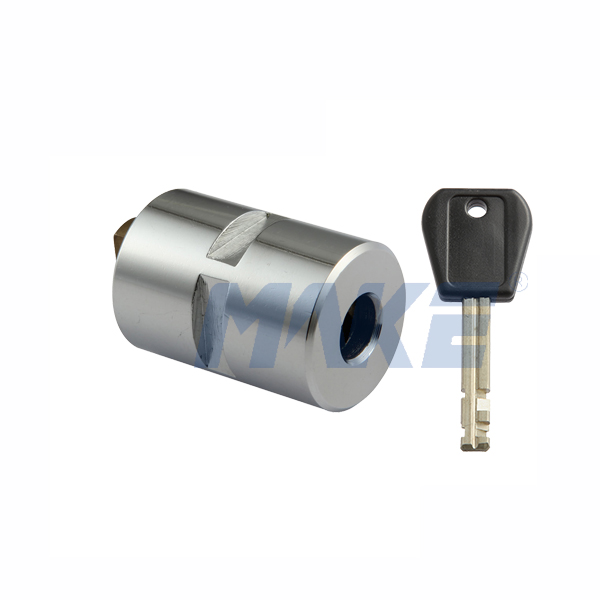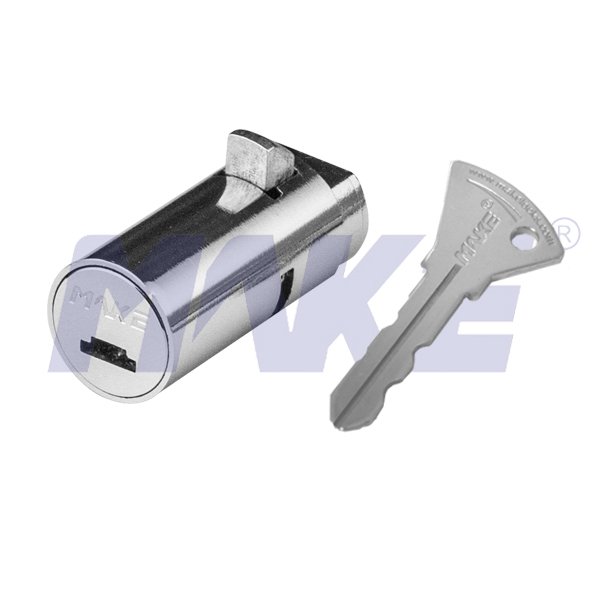Stainless Steel Locks vs. Zinc Alloy Locks
In addition to the function, appearance and performance, the material is an important factor that bears on the values of locks used in our daily life as well. What material a lock is made of is directly related to its safety. Although there is no 100% indestructible material, the security of the metal one is higher than that of a plastic one. And at present, stainless steel and zinc alloy are two widely used materials in lock manufacturing. What's the difference between them? Let's now have a look.
Advantages of Stainless Steel Locks
1. Possessing the characteristics of heat resistance and low-temperature strength, they can be used in areas with extremely cold climates, high temperatures or larger temperature differences.
2. They have strong corrosion resistance and can be applied in the coastal and rainforest regions with high salinity and humidity.
3. Due to their high strength and performances, like being fireproof, drilling-resistant, prying-resistant, sawing-resistant and anti-shock, stainless steel locks have a long service life and high safety.
4. With a uniform texture, good density, bright and delicate color and no sands holes and air holes, the original appearance of the product can be kept for a long time.
Disadvantages of Stainless Steel Locks
1. Stainless steel locks have high costs which are generally more than twice that of zinc alloy locks.
2. This kind of lock is hard in texture and difficult to form so that its appearance is too single and the selectivity is poor.

Advantages of Zinc Alloy Locks
1. Owning excellent casting properties, zinc alloy can be used for making precision components with complex shapes, thin walls and smooth surfaces.
2. Zinc alloy has a low melting point and melts at 385℃ so that it can perform well in the die-casting process, and various styles of products can be manufactured easily.
3. Both the price of the material and the casting cost are relatively low, and the selling prices of zinc alloy locks are lower than that of stainless steel ones.
Disadvantages of Zinc Alloy Locks
1. They have poor corrosion resistance. When the impurity elements lead, tin and cadmium in the alloy composition exceed the standards, the casting will be aged and deformed, which manifests the swollen volume and the significant reduction in mechanical properties, especially the plasticity. And in the presence of the steam (electrolyte), the corrosion can be promoted so that the casting will be aged.
2. The castings made of zinc alloy should not be used in the working environment with high temperatures and low temperatures (below 0℃). This material has better mechanical performance at room temperature. What's more, its tensile strength at high temperature and impact performance at low temperature will decrease obviously.
3. Zinc alloy locks own poor wear resistance, and they are usually easy to fade after a period of use.

In conclusion, stainless steel locks and zinc alloy locks have both strengths and weaknesses. Stainless steel locks are superior to zinc alloy locks in the service environment and durability. And zinc alloy locks are fashionable and diverse in patterns, which can satisfy the needs of different consumers.
Advantages of Stainless Steel Locks
1. Possessing the characteristics of heat resistance and low-temperature strength, they can be used in areas with extremely cold climates, high temperatures or larger temperature differences.
2. They have strong corrosion resistance and can be applied in the coastal and rainforest regions with high salinity and humidity.
3. Due to their high strength and performances, like being fireproof, drilling-resistant, prying-resistant, sawing-resistant and anti-shock, stainless steel locks have a long service life and high safety.
4. With a uniform texture, good density, bright and delicate color and no sands holes and air holes, the original appearance of the product can be kept for a long time.
Disadvantages of Stainless Steel Locks
1. Stainless steel locks have high costs which are generally more than twice that of zinc alloy locks.
2. This kind of lock is hard in texture and difficult to form so that its appearance is too single and the selectivity is poor.

Advantages of Zinc Alloy Locks
1. Owning excellent casting properties, zinc alloy can be used for making precision components with complex shapes, thin walls and smooth surfaces.
2. Zinc alloy has a low melting point and melts at 385℃ so that it can perform well in the die-casting process, and various styles of products can be manufactured easily.
3. Both the price of the material and the casting cost are relatively low, and the selling prices of zinc alloy locks are lower than that of stainless steel ones.
Disadvantages of Zinc Alloy Locks
1. They have poor corrosion resistance. When the impurity elements lead, tin and cadmium in the alloy composition exceed the standards, the casting will be aged and deformed, which manifests the swollen volume and the significant reduction in mechanical properties, especially the plasticity. And in the presence of the steam (electrolyte), the corrosion can be promoted so that the casting will be aged.
2. The castings made of zinc alloy should not be used in the working environment with high temperatures and low temperatures (below 0℃). This material has better mechanical performance at room temperature. What's more, its tensile strength at high temperature and impact performance at low temperature will decrease obviously.
3. Zinc alloy locks own poor wear resistance, and they are usually easy to fade after a period of use.

In conclusion, stainless steel locks and zinc alloy locks have both strengths and weaknesses. Stainless steel locks are superior to zinc alloy locks in the service environment and durability. And zinc alloy locks are fashionable and diverse in patterns, which can satisfy the needs of different consumers.

